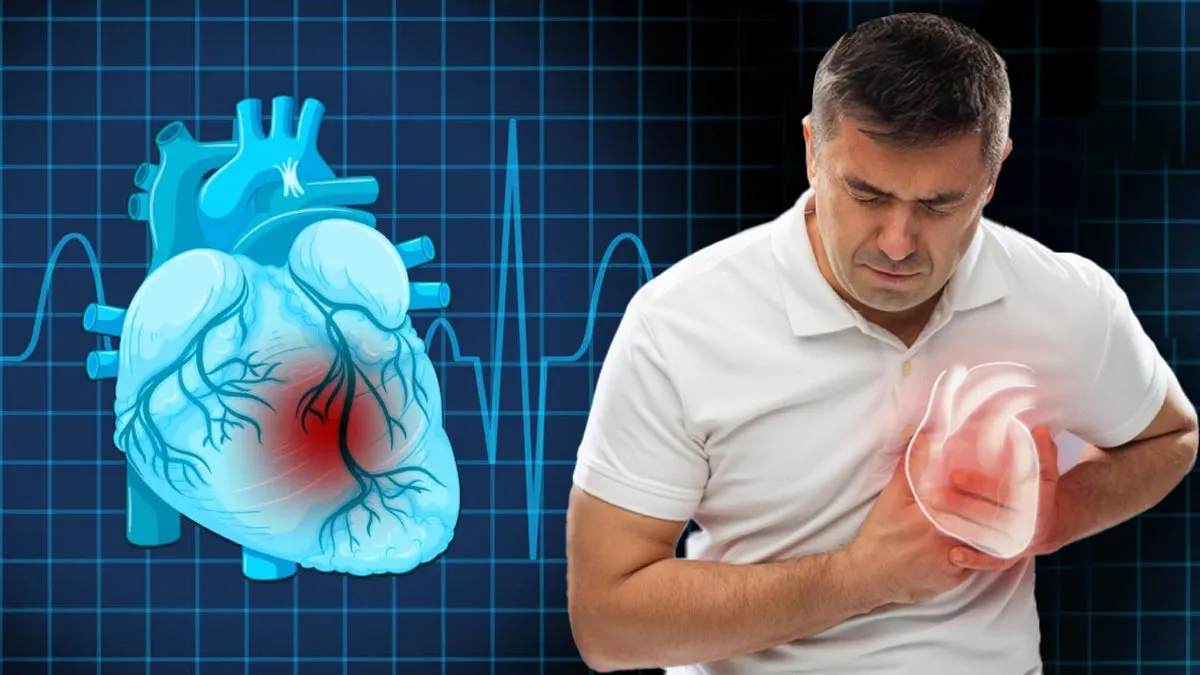
When discussing heart health, the words 'myocardial infarction' and 'heart attack' are used interchangeably as if they are one and the same. But are they? As explained by Dr Brajesh Kunwar, Sr Consultant Interventional Cardiologist, Apollo Hospitals, Navi Mumbai, being aware of the difference can make you identify the severity of the condition and respond promptly. Read ahead to learn what these terms are, what they cause, and why learning the difference would mean a life saved.
Table of Content:-
What’s the Difference Between a Myocardial Infarction and a Heart Attack?![Difference Between a Myocardial Infarction and a Heart Attack 1 - 2025-07-07T113027.515]()
Dr Kunwar clarifies, "The words 'myocardial infarction' and 'heart attack' tend to get used synonymously, but medically, one is the diagnosis and the other is the event." In layman's terms, a heart attack is the name that is used for what physicians term a myocardial infarction (MI).
A myocardial infarction is the medical term for the actual damage to the heart muscle. It occurs when a segment of the heart fails to receive a sufficient supply of oxygen-rich blood for an extended period of time. This absence of blood flow kills the heart muscle cells.
A heart attack, however, is the phrase most commonly used to characterise the entire episode when the person has chest pain, calls for assistance, and gets emergency care. It is "patient- and media-oriented" in the sense that patients and the media expect to hear myocardial infarction in a full, detailed description of the entire episode, says Dr. Kunwar.
What Causes a Myocardial Infarction?![Myocardial Infarction 2 - 2025-07-07T113022.860]()
The most common cause of myocardial infarction is atherosclerosis. This is when fatty deposits and cholesterol build up in the walls of the heart’s arteries over time. Dr. Kunwar explains, “These plaques may rupture unexpectedly, triggering the body’s clotting mechanism. A blood clot forms at the site, obstructing the artery and stopping the flow of oxygenated blood to the heart muscle.”
When the blockage lasts for more than 20 to 30 minutes, the heart muscle starts to die. The bigger the blocked artery and the longer the delay in treatment, the more damage to the heart.
Other, less common causes include:
- Coronary artery spasms: Sudden tightening of the artery, which can stop blood flow.
- Drug-induced vessel constriction: Drugs like cocaine can cause blood vessels to narrow suddenly.
- Spontaneous coronary artery dissection: A tear in the artery wall.
ALSO READ: Is Your Toothache a Symptom of a Heart Attack? Cardiologist Weighs In
Recognising the Symptoms
- Symptoms of a heart attack usually include:
- Sudden chest pain or discomfort
- Pain that spreads to the left arm, jaw, or back
- Sweating
- Shortness of breath
- Nausea
But not everyone has classic symptoms. “Diabetics and women often experience atypical symptoms like fatigue, dizziness, or stomach pain,” Dr Kunwar notes. That’s why it’s important to pay attention to any unusual feelings, especially if you have risk factors for heart disease.
Why Immediate Treatment Matters![Myocardial Infarction treatment 4 (85)]()
When a heart attack occurs, minutes matter. "Earlier treatment, like angioplasty or use of clot-dissolving drugs, can reduce damage to the heart," says Dr Kunwar. The earlier the blocked artery is opened, the more likely the heart muscle is to be saved. Even better, of course, is preventing a heart attack before it happens. The expert suggests further:
- Lowering blood pressure
- Stopping smoking
- Managing diabetes
- Regular exercise
- Following a heart-healthy diet
A study in the journal Circulation revealed that swift intervention in the first hour of a heart attack can greatly lower death and long-term heart damage risks. The study is highlighting the need for early detection and prompt medical assistance.
ALSO READ: Is Swelling In The Feet A Sign Of Heart Failure? Here’s When To Be Concerned
Conclusion
Knowing the difference between a heart attack and a myocardial infarction can help you identify the warning signs and act quickly. As Dr Kunwar says, "Recognising a myocardial infarction as more than just a 'heart attack' leads to faster response, better outcomes, and ultimately, lives saved." Take care of your heart, understand the symptoms, and don't delay if you feel something is amiss.
Also watch this video
How we keep this article up to date:
We work with experts and keep a close eye on the latest in health and wellness. Whenever there is a new research or helpful information, we update our articles with accurate and useful advice.
Current Version


-1751868262931.jpg)